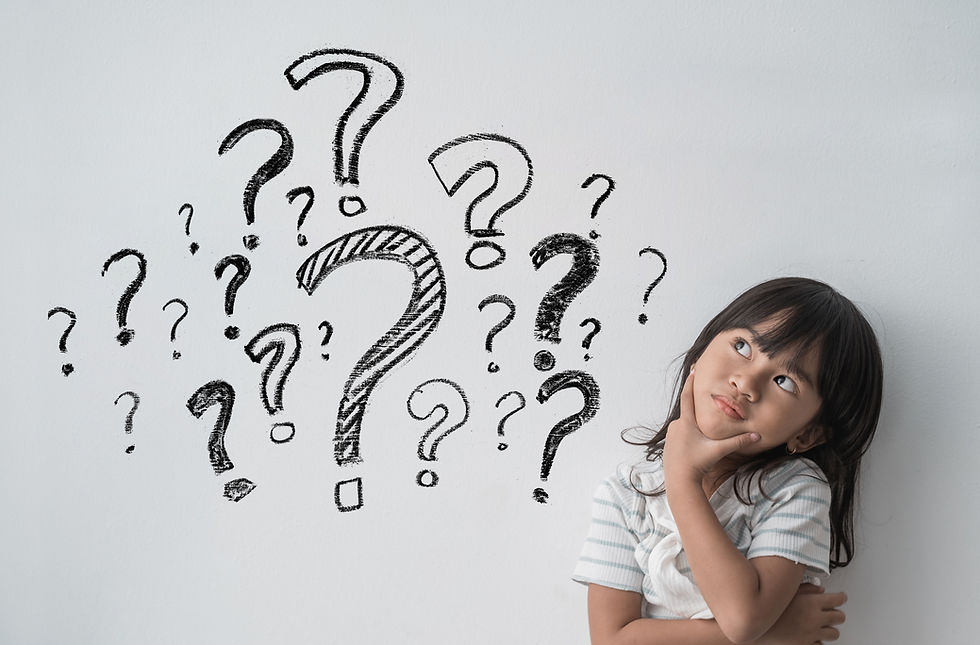WH Questions and Speech Therapy: What are They and How are They Used?
- Roswell Speech Therapy
- May 12, 2022
- 2 min read

The ability to ask and answer WH- questions is a fundamental developmental milestone. Through them, we can understand the world around us and express ourselves. WH- questions require us to use receptive, expressive, and pragmatic language. To answer WH questions, we have to be able to understand the question, formulate an answer, and take into consideration the social aspects of the question.
What are WH questions?
Wh-questions allow us to gather information and community wants and needs. They are frequently used in all settings (home, school, work).
Who – asks about a person (eg. ‘who took you to school?’)
What – asks about something (eg. ‘what is that?’)
When – asks about a time (eg. ‘when do you wake up?’)
Where – asks about a place (eg. ‘where are we going?’)
Why – asks about a reason (eg. ‘why are you running?’)
Why do some children have difficulty with WH questions?
There is no single answer to this. If your child is having difficulty with WH questions, some factors to consider include:
Can they pay attention long enough to understand and/or answer?
They may have difficulty understanding vocabulary
They may have difficulty understanding the question words (who, what, when, where, why)
They may have difficulty organizing a grammatically correct response
They may have difficulty organizing semantics to respond
Milestones for answering WH questions
1-2 years old
Where -answers by looking or pointing in the right direction\Answers "What's this" about familiar items
Answers “yes/no” questions, possibly with a head nod or shake
Can choose between 2 objects when asked what they want
2-3 years old
What, what's that, what doing, who is
Age-appropriate critical thinking questions "what do you do when you are hungry"
3-4 years old
More complex who, why, where, how
If-what questions "if you are cold, what do you do?"
Function questions "why do we have gloves?"
4 years old
Answers "how many" questions
When questions
How can parents work on WH questions at home?
Ask WH questions about storybooks -"who is this", "where are they going" and "what is she holding". If your child is unable to answer, can try using the following strategies:
label the picture and your child may repeat the label.
narrating your thoughts aloud is helpful "I see a girl...oh the girl is playing with blocks!"
Ask specific WH questions about your child's day. Some examples of questions to ask include:
What did you eat for lunch?
Where did you eat lunch?
When did you go to lunch?
Who did you sit with at lunch?
Where did you go during recess"
When did you go to recess?
When did you wake up?
Why did you put your coat on?
Why did you bring your books home?
Look at simple pictures from family photos and storybooks and ask questions
Define each WH question word:
Who – asks about a person (eg. ‘who took you to school?’)
What – asks about something (eg. ‘what is that?’)
When – asks about a time (eg. ‘when do you wake up?’)
Where – asks about a place (eg. ‘where are we going?’)
Why – asks about a reason (eg. ‘why are you running?’)
How – asks about the manner, condition, or quality (eg. ‘how do you tie your shoes?’)
If you would like more suggestions on how to help your child ask and answer WH questions please contact Roswell Speech Therapy. Our speech-language pathologists specialize in this area and are happy to help!



Comments